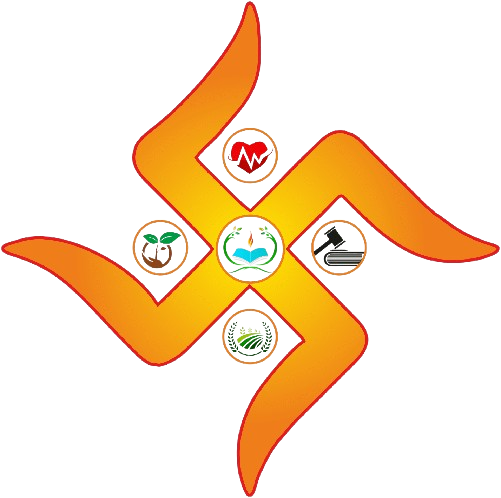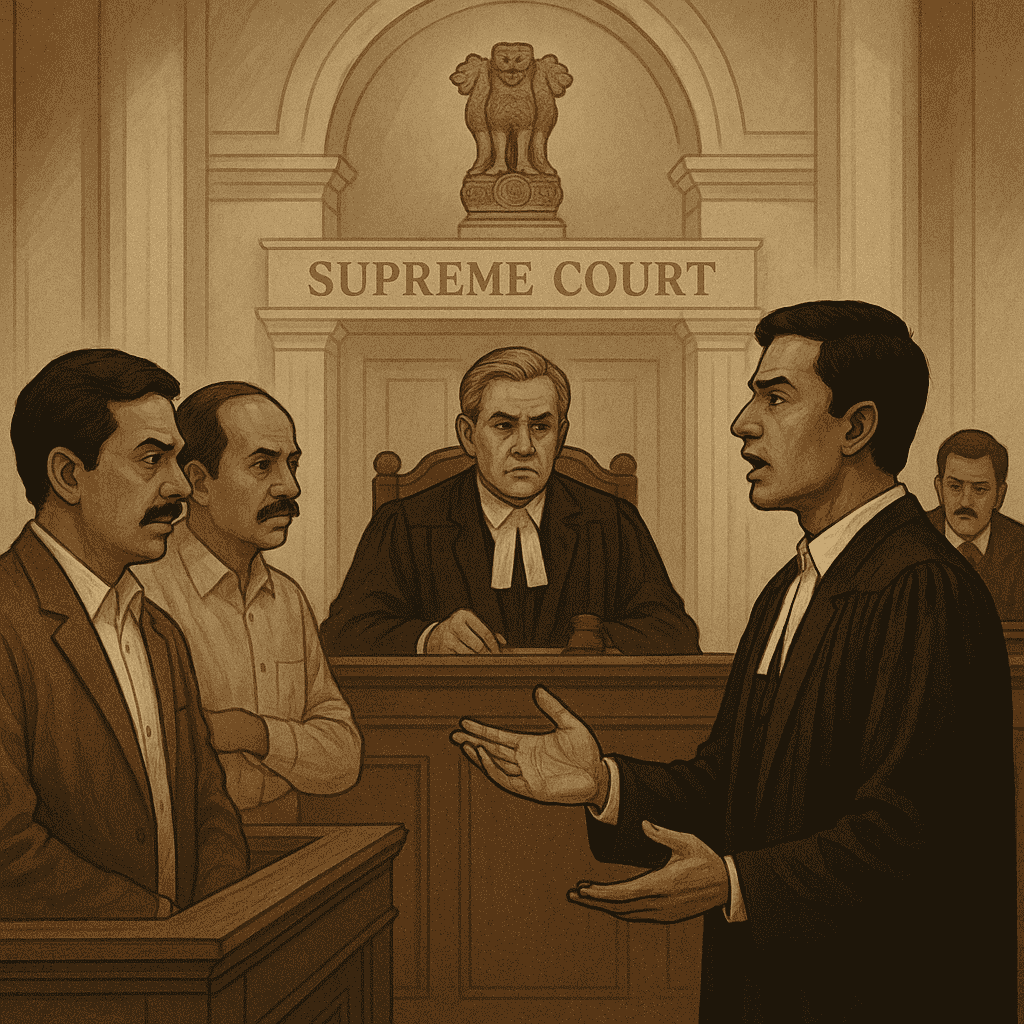



"Justice cannot be for one side alone, but must be for both"

Case Commentary
AN ADVOCATE V. HARADARA
By: Ms. Pavithra Prakash
Student of Law,
Sastra Deemed University
FACTS OF THE CASE
The appellant is an advocate. One of his old clients, Gautam Chand introduced the complainant- Respondent 1, Haradara, who wants to file a suit against S. Anantaraju for a recovery of due money of Rs. 30,098. The appellant on the instruction of Haradara filed a suit through his junior advocate. A notice was issued to the defendant, Anantaraju, demanding a certain amount of money under three self-bearer cheques issued by him during their mutual transactions. Gautam Chand had business dealings with both Haradara and Anantaraju. Earlier of this case, Gautam issued a legal notice to Anantaraju directing him to execute a sale deed. Gautam and Haradara had no conflict of interests andwere good friends. Anantaraju executed the sale deed on
27.11.81 where the agreement to sell executed on 9.8.80. Gautam told the advocate that he is in charge of the cheques and there were no conflict between complainant and defendant. He also asked the advocate to withdraw the suit, as it was settled outside the court on 9.12.81. The complainant didn’t raise any objective. The advocate according to the instruction withdrew the suit on 10.12.81, through his junior advocate.
The suit was filed against the advocate claiming that Haradara was not aware of any of these proceedings and withdrawal of the suit. Accordingly the Disciplinary Committee of the Bar Council of India, passed a judgment againstthe advocate charged him with professional misconduct and suspended him from practicing the profession for three years under section 35(3)(c) of the Advocates Act,1961. The advocate appealed to the Supreme Court under section 38 of the Advocates Act,1961.
ISSUES BEFORE COURT
- Whether the Committee should have specified the charges apprising the appellant of the true nature and content of professional misconduct laid on him?
- While recording the finding of guilt or determining the nature and extent of punishment, does the Committee applied the doctrine of benefit of doubt and need of establishing the basic allegations?
- Whether lack of charge and finding of dishonesty against him the appellant could be held guilty of professional misconduct even if he acted on good faith and in a bona fide manner? Would it amount to lack of prudence or non-culpable negligence or would it constitute professional misconduct?
ARGUMENTS OF THE PARTIESAPPELLANT’ S CONTENTIONS
The appellant claimed that the suit was withdrawn on the instruction of Gautam Chand, who introduced Haradara to himand a friend of Haradara.
The appellant believed in Gautam Chand whom he thought as an authorised agent of Haradara and withdrawn the suitaccourdingly. He did that in a good faith and in bona fide manner.
He was told that the matter of dispute was settled out of court by the three on 9.12.81.
Haradara didn’t at any time rise any object to this and accordingly he withdrawn the suit through his junioradvocate.
RESPONDENT’ S CONTENTIONS
The complainant alleged that he was not informed about further proceedings of the case, hearing of the case andeven the withdrawal of the suit mad by him.
He alleged that the matter in dispute has not been settled out of court and he had not received any due.
He said that the suit was withdrawn without his instructions and also received half of the institution court feewhich he was not aware of.
THE APEX COURT’ S DECISION
The State Bar Council, called for comments of the appellant relating to the complaint. He was specified with anycharges ascribing the nature and content of the professional conduct attributed to the appellant. Instead, the Bar Council took the case over to proceedings. The Disciplinary Committee of the Bar Council after hearing the matter found the appellant guilty of professional misconduct and suspended him from practicing his profession for about three years undersection 35(3)(c) of the Advocate Act,1961.
The appellant filed the appeal in the Supreme Court under the section 38 of the Advocates Act, 1961.
JUDGMENT
The Supreme Court, disposing the appeal, held that the appellant didn’t receive any reasonable or fair opportunity to explain his side of view on the case. He was not made aware of the precise charges made on him so that he can rebut that. The Disciplinary Committee didn’t consider the questions, whether the appellant acted with bona fide or mala fide,or whether the fact constituted negligence or professional misconduct, or if negligence whether it is culpable, whetherthere exists any mens rea. The doctrine of benefit of doubt and the need foe establishing the fact beyond reasonabledoubt were not realized. The appellant made the endorsement of withdrawal of the suit on his own hand and sent the brief to his junior advocate. If he had an evil or dishonest motive it would not have been made in his own hand. The Rule 19 of Section 2 of the Bar Council India Rules, captioned under “Duty to the Clients” says that an advocate shall not act on instructions of any person other than his client or his authorized agent. Here in the case, the appellant had believed that Gautam Chand was Haradara’ s authorized agent and acted according to his instructions. The order passed by the Disciplinary Committee, therefore cannot be sustained. According to The Mohindroo’ s case, “This matter is one of the ethics of the profession which the law has entrusted to the Bar Council of India. It is their opinion of a casewhich must receive due weight”. The Supreme Court did not find it appropriate to examine matter, the court remits thematter back to the Disciplinary Committee.
CONCLUSION:
In my view, the apex court didn’t hear the side of the appellant which is most essential one to protect the innocent. Herein the case the respondent didn’t rise any object to any of the proceedings. The respondent was introduced by Gautam Chand, who was a friend of the respondent. He accompanied him to file the suit. There were circumstances which made the appellant believe that Gautam Chand was the authorized agent of the complainant. So he acted according to the instructions of Gautam Chand, which is legally right. Here, the appellant didn’t have any evil intentions to deceive the respondent. The appellant had only received money which he is legally entitled to get. It is not only the duty of the advocate to follow the case but also the duty of the client to ask for details of the case. The advocate negligently believed that the matter was settled out of court, and withdrawn the suit. For his negligence he can be charged with small penalty but suspending him for about 3 year is unfair. The circumstances made him believe that Gautam Chand was his authorized agent. Hence he was not a guilt of professional misconduct.
Journal Volume
You should always try to find volume and issue number for journal articles.


Nyayavimarsha
No. 74/81, Sunderraja nagar,
Subramaniyapuram, Trichy- 620020